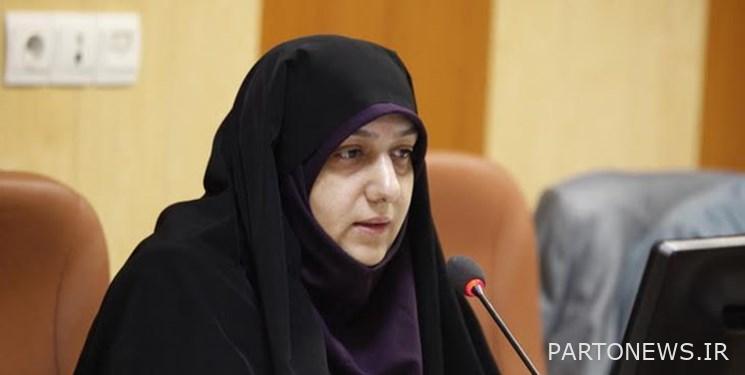
According to Fars reporter, Narges Mandaripour, head of the Cultural and Social Commission of Tehran City Council, during the 86th meeting of this council, during the examination of the letter of the governor of Tehran regarding the objection of the implementation board to the approval of the “Regulation of Neighborhood Participation of Citizens in Urban Management”, stated: He has taken the objection to the approval of the neighborhood participatory system of citizens in urban management.
He continued: In the first objection, he refers to the contradiction of clauses 2 of article 3 and one of article 4 with article 80 of the law on the organization of duties and powers of the Islamic Councils of the country and the election of mayors approved in 1975 with the application of the latest changes and subsequent amendments, because the Islamic Council of the city of Tehran For executive bodies such as government, military and law enforcement, etc., it has created a requirement to participate in neighborhood partnership headquarters and neighborhood management board of trustees.
Mandaripour stated: According to the governor’s letter, they meant two articles that we had said in the local headquarters and the local board of trustees that Tehran municipality is obliged to invite organizations outside the municipality to attend.
He pointed out: It should be noted that this was only an invitation and no requirement was considered for these two camps, however, the commission made some amendments in order to satisfy the opinion of the governor in paragraphs two and three.
The head of the Cultural and Social Commission of the Islamic Council of Tehran pointed out: In line with the synergy, cooperation and collaboration of all interested and involved institutions in neighborhood activities, a headquarters will be formed with the aim of guiding and organizing social partnerships in the neighborhoods of Tehran. Therefore, Tehran Municipality is allowed to plan and closely monitor neighborhood activities and organize the necessary guidelines for the implementation of this regulation with the following members. In this regard, the title of plenipotentiary representative of the organization and device can also be used.
He continued: Paragraph one of article four was also amended in such a way that Tehran Municipality is allowed through interaction and coordination with the stakeholders and neighborhood stakeholders and without any organizational development and increase in manpower compared to the formation of the board. The trustees of the neighborhood management in the neighborhoods of Tehran should take action with the participation of the following members, whose members are also specified in the constitution.
This member of the Tehran Islamic Council pointed out: In the second paragraph, the objection that was taken is related to note 2, article 3, paragraph three, article three, notes one, four, and eight, article four, and notes to article 5 and article 6, which were declared to be contrary to Article 4 of the Internal Elections and Financial Affairs Regulations of the Islamic Councils approved in 1978 by the Board of Ministers with subsequent amendments, and also in Article 5 of the Internal Regulations of the City Islamic Councils approved in 1984 by the Board of Ministers regarding the delegation of the legal powers of the Islamic Council to others.
He emphasized: The issue was about the guidelines that we said in these paragraphs, for example, the Tehran Municipality or the Cultural and Social Commission prepares the guidelines and approves the coordination headquarters of neighborhood partnerships in urban management, which consists of 7 members of the council. deliver The governor points out that this is against the law, while guidelines must be prepared and approved. These are the representatives of the council in that headquarters, while we have had something like this in the budget bill in note 18 and note 21 of the municipal budget approval, and there it is said that guidelines should be prepared and approved by specialized commissions.
Mandaripour continued: The answer that was given to this objection was that in the previous approvals of the Islamic Council of Tehran, there are records and documents indicating the authority to approve executive instructions by specialized commissions, such as Note 18 and Note 21 of the municipal budget approval in The year 1401 is one of the cases that are announced in the executive instructions after the approval of the specialized commissions, while the coordination headquarters of the neighborhood partnerships, which in the aforementioned system consists of one third of the members of the Islamic Shawari of Tehran, compared to the composition of the commission. Specialists have the necessary conditions to approve the instructions. Therefore, this confirmation does not conflict with the legal documents listed in paragraph two of the governor’s letter.
In the end, he said: In paragraph three, it is stated that the said paragraph is contrary to Article 95 of the Law on the Organization of Duties and Elections of Islamic Councils of the Country and the Election of Mayors approved in 1975 with the application of the latest changes and reforms. Of course, there is no problem with the membership of the council members in the neighborhood partnership headquarters, which was determined to be an observer member.
The end of the message/T 23
You can edit this article
Suggest this article for the first page

